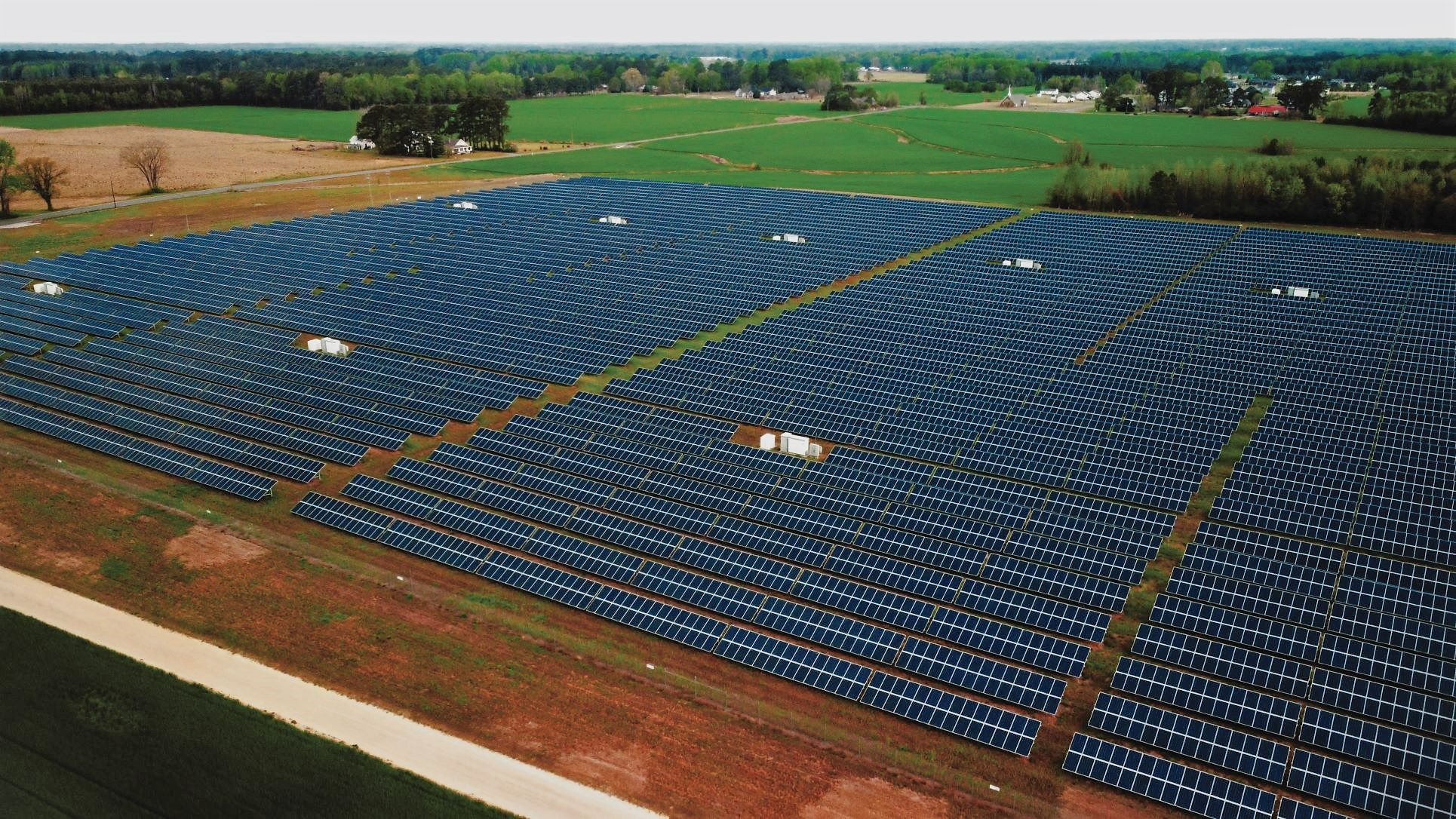A New Way of Farming in Mount Olive, NC
A New Way of Farming in Mount Olive, NC
Excerpt from Sacred Spaces, Innovative Places with permission from the Cooperative Baptist Fellowship.
What might your church do with a gift of over 200 acres of farmland? This was the dilemma for the membership of First Baptist Church of Mt. Olive, North Carolina. In 2003, the church was the recipient of a significant gift from the estate of a church member. The gift included over 200 acres of land. Part of this acreage was quickly sold. A sizable portion was seen as valuable for farming and this acreage was leased at a competitive rate for agricultural use.
In 2013, Birdseye Renewable Energy was looking for tracts of land in Eastern North Carolina that would be suitable for solar farms. The company reached out to the church. Two parcels met the needs for successful solar farming.
Church leadership was intrigued. The FBC Mt. Olive Trustees, who represented the church in the process, committed themselves to learning everything that they could about solar farming.
Within a year, Birdseye and the church moved from that initial phone call to reaching an agreement to lease the appropriate two parcels. The properties are leased through 2044 and return 400% more in income per year than would have been the case had they remained leased for traditional farming.
One result of the agreement has been the way that the experience has expanded the horizons for the church. Today, when Pastor Dennis Atwood talks about the farms, the church and the church’s engagement with the community, he does so in ways that clearly conveys the importance of living with a posture of possibility and an attitude of openness. The solar farm experience has helped both Atwood and other church leaders to appreciate and embrace the idea of how limitless possibilities really are in so many situations.
Another clear benefit of the solar farms is that they have helped the church to think more clearly and personally about what it means to care for the environment. Solar energy is clean energy. It is a way to be a good steward of the earth. As the church has learned about all of this, they have thought more deeply about other ways to care for God’s creation and about how they themselves can play a key role in this work. FBC Mt. Olive’s perspective on creation care and its role in the life of the church and in the development of a strong Christian theology likely would not be where it is today without their direct experience with solar farming.
The major benefit for the church has been the financial blessing because of the solar farming venture. It has certainly eased the financial challenges of the church. And the entire Mt. Olive community has also benefited. First Baptist is currently working on a new ministry initiative called The Gratitude Project through which the church plans to provide $100,000 to identified community partners who are working to alleviate poverty, improve affordable housing, provide educational needs for children and youth or to support economic development among the poor in Mt. Olive. This gift is a direct result of the earnings being generated by the two solar farms.
When one first hears the story of First Baptist Mount Olive and their two solar farms, the initial reaction might be to conclude that this is a remarkable story but not one that can be reproduced. Yet, church leaders are quick to point out is that other churches should explore this opportunity.
Rev. Atwood points out that often, rural churches have members with lots of land. In turn, a strategic conversation might involve asking members to at least consider leaving a small portion of their land to the church in their will or to gift a small portion of their land to the church while they are alive.
There are many creative ways that congregations can use property as a means of generating revenue. The example of Mt. Olive First Baptist Church opens a world of possibilities for churches to explore.
This story is part of Lake Institute’s story collection, the Faithful Generosity Story Shelf, which highlights congregations and other religious organizations who have sought to use their assets and resources in creative—and sometimes surprising—ways as an expression of faithful giving.
Each entry in our Story Shelf is short enough to be read and discussed during a committee meeting or other group gathering. Our hope is that these accessible vignettes will spark new questions, conversation, and imagination among clergy and laity about what might be possible with the funds, buildings, land, and other resources in their care. If you know a story that should be included in the Story Shelf, suggest it here.
Subscribe
Insights is a bi-weekly e-newsletter for the religious community and fundraisers of faith-based organizations that provides:
- Reflections on important developments in the field of faith and giving
- Recommended books, studies and articles
- Upcoming Lake Institute events

